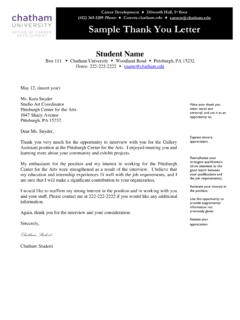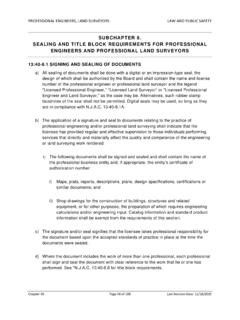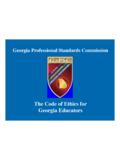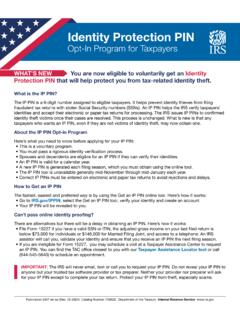Transcription of Defining your Professional Identity - Chatham University
1 Defining your Professional Identity Defining and crafting your Professional Identity is key to maximizing your career opportunities and aligning them with your values. Developing You Professional Identity Through your education, work, and life experiences, you have developed skills, knowledge, work behaviors and values, ethics and goals that will lead you towards purposeful and fulfilling work. Knowing and being comfortable with your Professional Identity throughout your career development builds confidence and enthusiasm. You will be more apt to reach out to network or apply for a job because you recognize your Professional value and recognize that employment is a form of community engagement.
2 When you understand that your Professional Identity satisfies the requirements of a specific job, but can also be transferable to other types of community engagement, you realize that across fields and work environments, employees and employers are a team who share the common goal of providing a product or service to benefit others. Having clarity about your current Professional Identity will enable you to advance your career by quickly identifying other skills needed to meet short term and future goals and the demands of a changing workforce. Applying your Professional Identity to the Work World The benefits of taking the time to define and craft your Professional Identity will help you to create.
3 A well thought out approach to your short term career goals including what you have to offer and what you want to learn A succinct and compelling elevator statement A well-written, concise and relevant resume A cover letter that targets exactly how you are a good fit for a particular job Interview tactics that help you and the employer know if you are a good fit for the job Building Competencies at Chatham In job search articles and blogs, there are many different definitions for terms like competencies, qualifications, soft/hard skills, etc. As long as you are developing knowledge and abilities, it doesn t matter what they are called! At Chatham , we focus on helping you develop your Professional Identity through what we call our Professional Competency Model (PCM).
4 The Chatham PCM focuses on building abilities through engagement in order to be work-ready upon graduating. The Professional competencies are learned and developed through experiences in classrooms, extra-curricular activities, mentorship, and experiential learning opportunities like internships and volunteer work. Your experiences throughout your life and at Chatham enable you to develop competencies that include these important components of your Professional Identity . Skills and abilities Tangible/hard skills - computer skills, writing skills, Intangible/soft skills adaptability, problem solving, Knowledge, training, and/or education that is relevant to an industry and a particular job.
5 Experience using skills, knowledge and/or training to perform job duties and tasks that are key to the job responsibilities. Values, ethics and workstyle behaviors and preferences that allow for success in an organization. Use Chatham s Professional Competency Model Self-assessment to discover your current abilities and determine which ones you would like to develop. Seek assistance from faculty advisors, mentors and the Career Development advisors to understand which competencies are key for your major field of study and to find opportunities to develop your skills and competencies.







